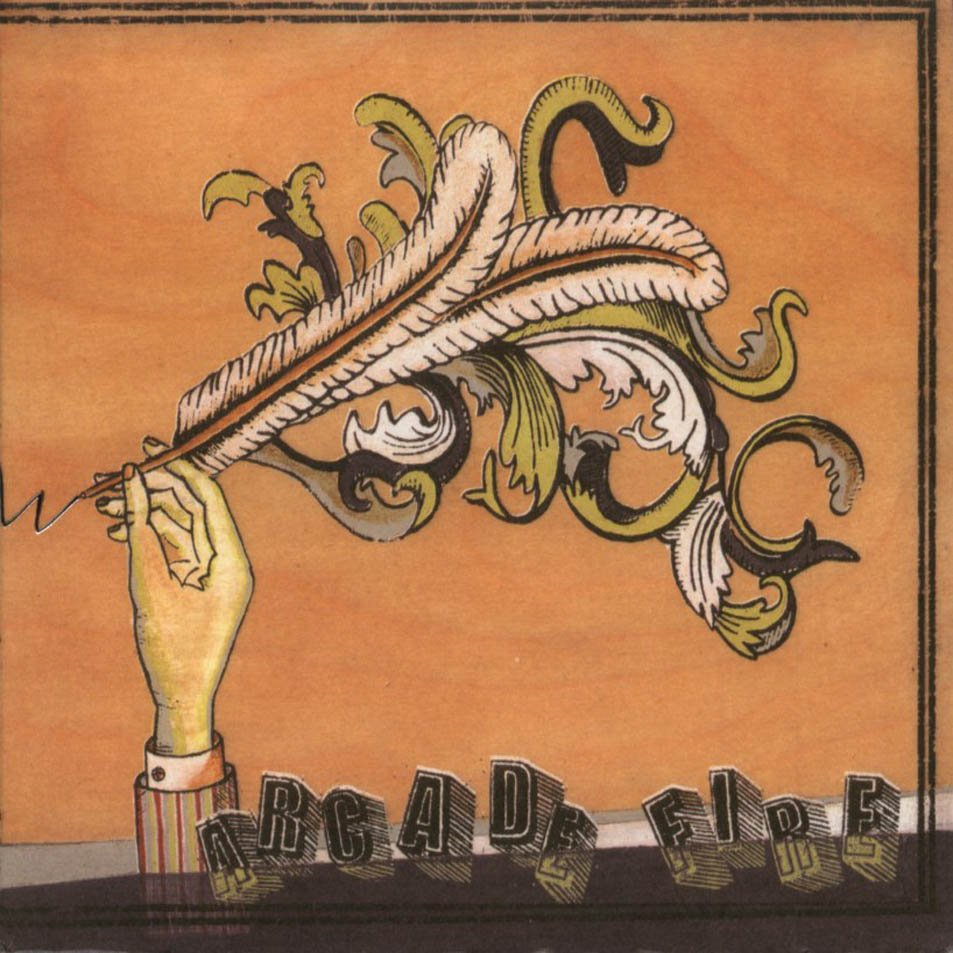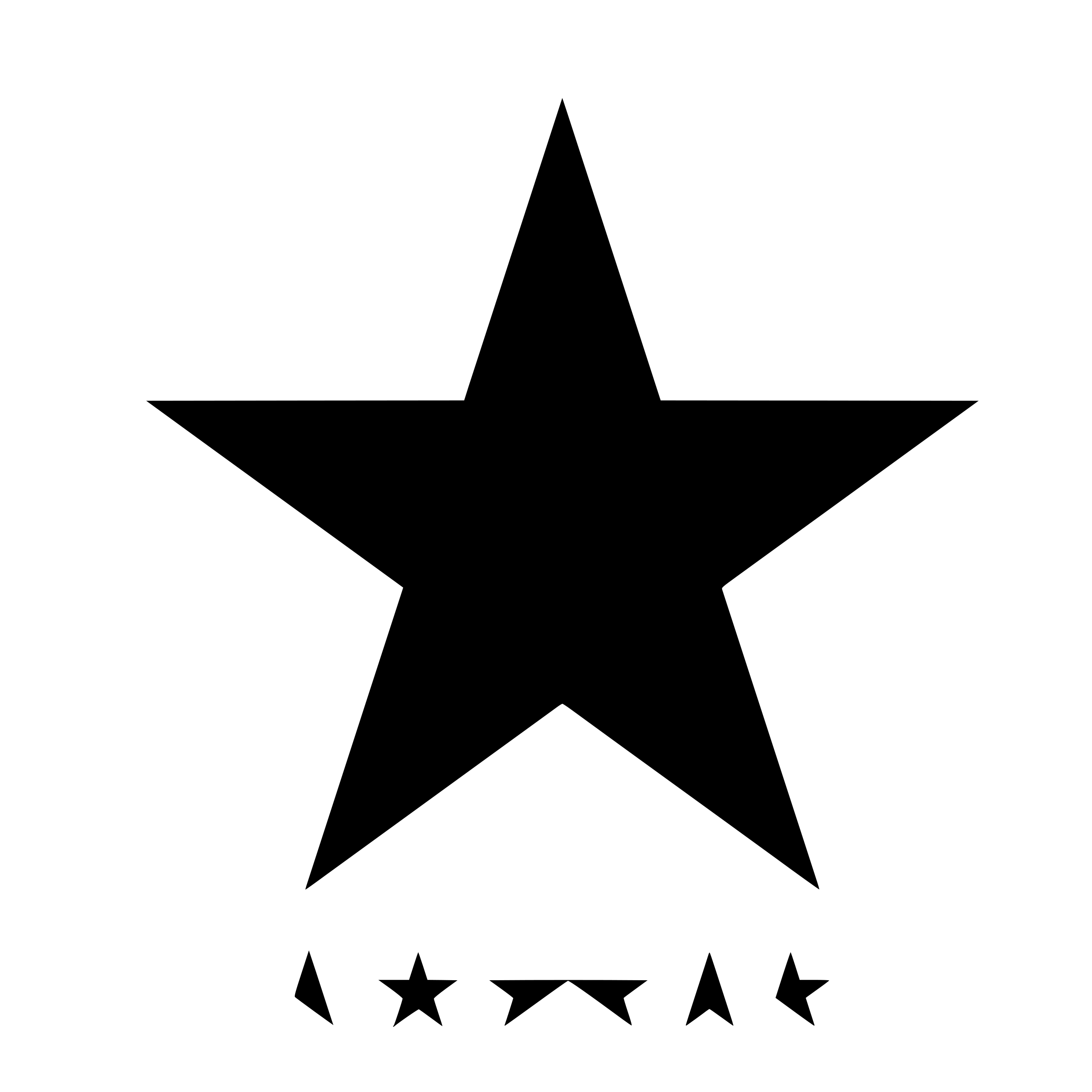What I remember most is two deranged geekboys drumming on each other's helmets. There was so much to love about Arcade Fire in 2004, but the image of Richard Peed Parry and Will Butler frantically pounding each other's skulls during performances of "Neighborhood #2 (Laika)" is the one that sticks with me above all else. Long before Arcade Fire were headlining arenas, they emerged from Montreal as this ambitiously sprawling ensemble packing impossible amounts of life into tight spaces.
My first encounter with them was at Mercury Lounge during 2004's CMJ Music Marathon, when they headlined a Merge showcase over Lou Barlow, the Rosebuds, and the Clean's David Kilgour (backed by Yo La Tengo, no less). In retrospect it seems inevitable that Arcade Fire, the definitive indie-rock band of their era, would be the main attraction on such a lineup. But back then top billing was quite the coup for this plucky anonymous behemoth decked out in their sweatiest Sunday best. Win Butler even introduced the band with a smirking, "Hi, we're Flavor Of The Month." It's true that the hype storm swirling around Arcade Fire at the time has rarely been matched, even in this age of infinite internet hyperbole, but in this case the hysteria was warranted -- and absolutely matched by the maniacs on stage gleefully swapping accordion, violin, drums, and guitars while testing the limits of their lung capacity. Arcade Fire had just released one of the most triumphant rock records of all time, and it was clear that their powers would not be contained by such close confines much longer.
That record, Funeral, turns 10 years old Sunday. Revisiting it feels different from the usual retrospective because at least for me, Funeral has never really gone away. I still keep it on my phone, and I continue to play it every few months in all kinds of situations. Beyond my own personal frequent visitations, Funeral's just in the air. This music is a mainstay of my life and of the larger musical culture Arcade Fire helped to shape. It lingers on in movie trailers, at music festivals, as the basis for late-night road-trip sing-alongs. And beyond the endurance of the album itself, its echoes are everywhere.
Arguably the most influential indie-rock record of its era, Funeral is a how-to guide for grand, artful, cathartic rock music that's nonetheless proven impossible to replicate -- and many, many bands have tried. In the years that followed Funeral, so many of its tics became indie-rock clichés: sing-songy choral exuberance, orchestral instruments, madcap auxiliary percussion, Springsteen love, so many band members you can barely fit them on stage, even dressing up rather than wearing ratty T-shirts. The entire enterprise of indie bands aiming for arena-rock grandeur was, if not invented, certainly popularized by the Arcade Fire of Funeral. Win Butler's reverent sincerity, Régine Chassagne's theater-kid enthusiasm, and the entire ensemble's unapologetic splendor -- it all helped steer indie-rock to somewhere far away from Pavement's ironic detachment. Their scope was way bigger than anyone else on Merge, from founders Superchunk to longtime standard-bearers Spoon. Even Neutral Milk Hotel's arching, epic In The Aeroplane Over The Sea feels small compared to Funeral. Paradoxically, even U2, one of the arena-uplifting forces of nature that paved the way for this record, attempted to imitate Arcade Fire this week. They have become the platonic ideal of anthem-slinging.
We've come to know them as this massive (some would say bloated), Grammy-winning, chart-topping, festival-headlining institution. They've grown up from plucky underdogs into monsters of rock -- that band that covers corny songs in arenas every night and just won't go away. But as noted in last year's Reflektor review, Funeral was very much an indie-rock record. Arcade Fire were swinging for the fences, but they were doing it with the sounds that populated the underground. The chintzy, chiming guitar chords and harrowing howls of "Neighborhood #2 (Laika)" bear the marks of Modest Mouse; the pinched piano waltz "Crown Of Love" is unmistakable Bright Eyes pastiche; the disco-punk drums that undergird "Neighborhood #3 (Power Out)" are a reminder that the Rapture's Echoes was only a year old at the time; that accordion and old-timey attire were borrowed from the Decemberists, who themselves were a ripple effect of Neutral Milk Hotel.
Much of the brilliance of Funeral was they way it blended those predominantly small-scale sounds with the bigger-than-life populist ambition of U2 and Springsteen. It absolutely, undeniably worked: The album's most iconic tracks, from "Neighborhood #1 (Tunnels)" to "Rebellion (Lies)" to "Wake Up," are monstrous, sweeping, all-conquering swells of emotion, the kind of monoliths only the coldest-hearted codgers can resist. From a pure songwriting perspective, they are flawless examples of music's rapturous potential harnessed for all it's worth. Funeral is Arcade Fire's worst-produced record, a far cry from the state-of-the-art professionalism of The Suburbs, but whatever the album lacks in crispness or clarity, it more than makes up for in musical vision and sheer force of will. Famously crafted in the aftermath of multiple deaths in band members' families, Funeral is the sound of desperately finite people channeling infinite sadness, mustering every last ounce of passion and earnestly blasting it to the far reaches of the universe. Whatever you're dealing with, this music will sweep you up and carry you away with it. Somehow, it converts that pain and confusion into reverie.
I saw Arcade Fire twice on the Reflektor tour -- once at Coachella, once at my hometown arena -- and both times it was the Funeral material that sent a collective shiver through the masses. There's a near-religious effect at the peak of "Neighborhood #1," when the band builds to its breaking point and Butler exclaims, "Spread the ashes of the colors over this heart of mine!" "Haiti" spirits entire audiences away to some fantastical dreamt-up version of the Caribbean. The call-and-response surge of "Rebellion (Lies)" is still as electrifying as it was back at Mercury Lounge. And that majestic, wordless roar that overtakes the steady percussive wallop of "Wake Up" continues to move hearts and minds, if not mountains. Arcade Fire have continued to write show-stopping classics in the intervening decade, but it's hard to imagine them ever topping the climactic power they conjured on that first instant-classic collection. It's almost unbelievable that these dweebs in formal dresses and silkscreened blazers were able to achieve something so universal. But they did, and for 10 years now we've been trembling in its wake.
[videoembed size="full_width" alignment="center"][/videoembed]
[videoembed size="full_width" alignment="center"][/videoembed]
[videoembed size="full_width" alignment="center"][/videoembed]
[videoembed size="full_width" alignment="center"][/videoembed]
[videoembed size="full_width" alignment="center"][/videoembed]






